Africa's business world is evolving with an impressive vibrancy. Several industries are witnessing substantial growth, providing a beacon of hope for both local and international entrepreneurs.
One cannot overlook the technology and startup boom. Innovation hubs are sprouting across cities like Nairobi, Lagos, and Cape Town, nurturing creative minds and groundbreaking products. Mobile technology, in particular, is revolutionizing everyday life for many Africans.
The agricultural sector is another bright spot. Africa's fertile land holds immense potential, making agribusiness a lucrative venture. With an increasing focus on sustainability and modern farming techniques, the sector is poised for further growth.
Renewable energy is also making strides. With a vast expanse of sunny landscapes, African countries are investing heavily in solar and wind energy, aiming to provide clean and affordable power to millions.
Healthcare innovations are not far behind either. Given the continent's unique health challenges, local entrepreneurs are coming up with tailored solutions that are both accessible and effective.
Diving into these sectors provides key insights and opportunities for anyone looking to be part of Africa's economic renaissance.
Technology and Startups
The technology sector in Africa is witnessing an unprecedented boom. Cities like Nairobi, Lagos, and Cape Town have emerged as burgeoning tech hubs, buzzing with innovation and entrepreneurial energy. Africa's youthful population, coupled with increasing access to the internet and mobile technology, is fueling a transformative wave in the continent's digital landscape.
One major driver of this growth is mobile technology. With more than 747 million mobile connections as of 2023, smartphones are becoming a lifeline in many African communities. They are revolutionizing everyday activities—from banking and health services to farming and education. For instance, mobile money platforms like M-Pesa have transformed how people manage their finances. M-Pesa, which originated in Kenya, allows users to deposit, withdraw, and transfer money using their mobile phones. It's important to note that nearly half of Kenya's GDP transacts through mobile money, demonstrating its immense impact.
"In Africa, necessity is the mother of digital innovation. Tech startups are solving real-life problems with ingenious solutions," says Rebecca Enonchong, a tech entrepreneur and advocate for digital innovation in Africa.
Beyond mobile technology, local startups are making significant headway in sectors such as fintech, health tech, and edtech. These startups are not only creating employment opportunities but are also driving economic growth. Fintech companies, for example, are addressing the continent's unbanked population by providing digital financial services. Companies like Flutterwave and Paystack are enabling secure and accessible payment solutions for businesses and consumers alike.
Health tech startups are also gaining traction. In countries where healthcare infrastructure may be lacking, technology offers a viable solution to bridge the gap. Companies like mPharma are using data and digital tools to supply affordable medications to pharmacies and patients. By leveraging technology, these innovators are improving health outcomes and extending care to underserved communities.
Moreover, the education sector is seeing a surge in digital solutions. Platforms like Andela are not only training Africa's next generation of software developers but are also connecting them with global employment opportunities. Such initiatives are transforming the education landscape, making quality learning accessible despite geographical constraints.
The Role of Innovation Hubs
Many African cities boast dedicated innovation hubs that support and nurture startups. Cities like Nairobi have Innovation Village, and Lagos has the Co-Creation Hub (CcHub). These hubs provide essential resources such as co-working spaces, funding opportunities, mentorship programs, and networking events. They act as catalysts for innovation, fostering an environment where creativity and entrepreneurship can thrive.
Governments and private sector players are also recognizing the potential of the tech industry. Investments in infrastructure, favorable policies, and public-private partnerships are creating an enabling atmosphere for startups to flourish. For instance, Rwanda's Vision 2020 initiative aims to transform the country into a knowledge-based economy by investing in ICT infrastructure and startups.
The rapid rise of technology and startups in Africa is not just a trend—it represents a significant shift in the continent's economic narrative. With their unique blend of local insight and global ambition, African tech entrepreneurs are set to shape the future, providing innovative solutions to some of the continent's most pressing challenges.
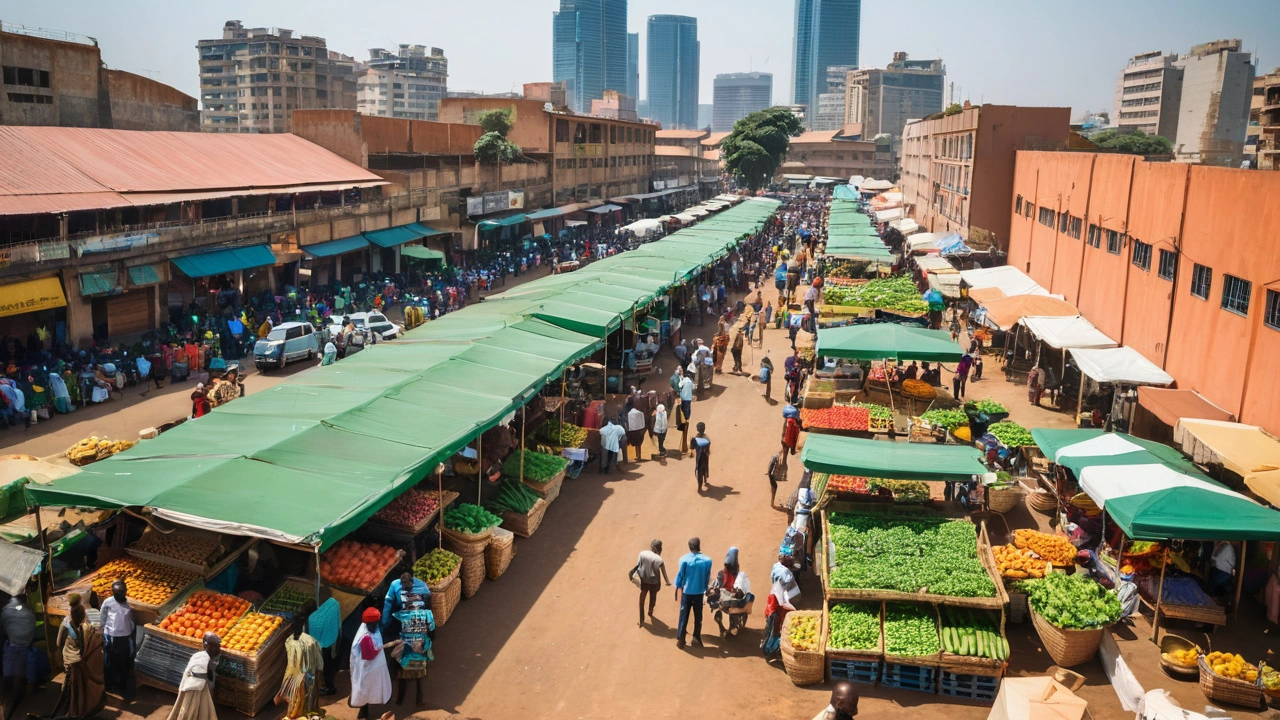
Agriculture and Agribusiness
Agriculture is often referred to as the backbone of Africa's economy. The continent, blessed with vast tracts of fertile land, suitable climates, and ample water resources, has a lot to offer in terms of crop and livestock production. For centuries, farming has been the primary way of life for many Africans, providing sustenance and livelihoods. But recent developments in the sector are making it a hotbed of business opportunities, drawing interest both locally and internationally.
The potential in African agriculture is immense. Some of the world's most fertile lands are found here, and they remain largely untapped. According to the Food and Agriculture Organization (FAO), Africa has 60% of the world's uncultivated arable land. This presents a unique opportunity for large-scale farming and agribusiness ventures. Entrepreneurs can get involved in producing staple crops like maize, rice, and wheat, or delve into high-demand cash crops such as cocoa, coffee, and tea.
The leap from traditional to modern farming practices is another area seeing significant growth. African farmers are adopting new technologies and methods to boost productivity and sustainability. From improved seed varieties to innovative irrigation systems, the sector is witnessing a transformation. This, in turn, is attracting investment from agritech companies eager to provide solutions tailored to Africa's challenges. Paul Polman, former CEO of Unilever, once pointed out, "Investing in sustainable agriculture is not only a social good, it's a business imperative."
"Investing in sustainable agriculture is not only a social good, it's a business imperative." - Paul Polman, former CEO of Unilever
One noteworthy trend is the rise of agribusiness startups. Young entrepreneurs are venturing into farming with modern, efficient methods. They are using technology to bridge gaps in the value chain—from production to distribution. Digital platforms now connect farmers directly with buyers, ensuring fair prices and reducing post-harvest losses. Initiatives like these are revolutionizing the sector, making it more attractive to the youth who previously saw agriculture as a labor-intensive, low-reward profession.
Government policies and international partnerships also play a crucial role in this transformation. Many African nations are implementing favorable policies to encourage agribusiness. These include tax incentives, subsidies, and grants aimed at boosting local production and export potential. Additionally, partnerships with international bodies like the World Bank and African Development Bank provide the necessary funding and technical assistance to execute ambitious agricultural projects.
The livestock sector deserves attention too. Africa's meat and dairy industries are expanding rapidly to meet the demands of its growing population. With urbanization comes an increased appetite for protein-rich diets. Modern livestock farming techniques, veterinary care, and quality feed are key areas where businesses can thrive. Investing in these areas not only supports food security but also opens up profitable ventures in meat processing and dairy products.
The future of African agriculture looks promising. The marriage of technology with traditional farming, coupled with favorable policies and global partnerships, is setting the stage for significant growth. For anyone looking to invest or launch a venture in Africa, agriculture and agribusiness offer abundant opportunities.
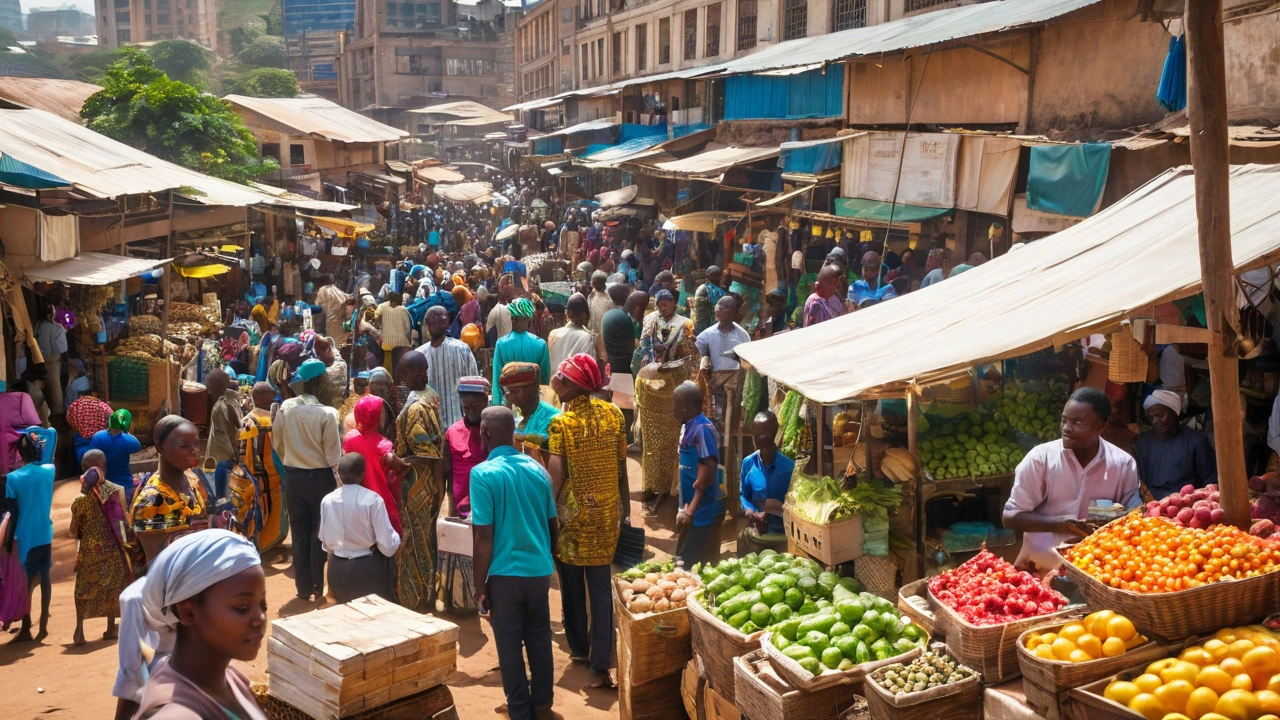
Renewable Energy
Africa’s potential for renewable energy is enormous and largely untapped. The continent enjoys a vast expanse of sunny landscapes and coastal winds that can be harnessed for clean energy. Many countries are now focusing on renewable sources to solve energy shortages and supply reliable power to millions. Solar power, in particular, is gaining immense popularity due to Africa's geographical advantage.
This shift toward renewables offers a solution to various pressing issues. Notably, millions of people in rural areas still lack access to electricity. Solar energy projects, such as off-grid solar home systems, are changing lives by providing power where the traditional grid fails to reach. Countries like Kenya and Tanzania are leading the charge with innovative solar programs that target rural households.
Business investors are also eyeing opportunities in Africa’s renewable sector. The region’s growing energy needs make it an attractive destination for investment. Programs like Scaling Solar, backed by organizations like the World Bank, make it easier for developers to build large-scale solar plants. This initiative aims to fast-track solar power projects, lowering development costs and delivering power quickly.
Interestingly, the economic benefits of adopting renewable energy are substantial. For instance, building and maintaining solar farms creates jobs, contributing to local economies. Moreover, renewable energy systems reduce dependency on fossil fuels, decreasing energy costs in the long run. As governments realize these advantages, they’re drafting policies and incentives to attract foreign and local investments in this sector.
One notable project is the Noor Complex in Morocco, one of the world's largest solar power plants. The Noor Ouarzazate Solar Complex aims to produce enough electricity to supply millions of homes, significantly reducing carbon emissions. Success stories like these showcase Africa's potential to lead in the global renewable energy space.
An expert from the International Renewable Energy Agency recently said,
“Africa is at the brink of a renewable energy revolution. The investments and innovations we’re witnessing can redefine the energy landscape, making power accessible and affordable for everyone.”Such perspectives highlight the growing optimism and practical advancements happening on the ground.
Wind energy, alongside solar, is also making great strides. Countries like South Africa are tapping into their windy coastal areas to generate electricity. The South African Renewable Energy Independent Power Producer Procurement Programme (REIPPPP) has been instrumental in attracting investments and ensuring that renewable energy projects are implemented efficiently.
Hydropower continues to be a cornerstone of renewable energy in Africa. The Democratic Republic of Congo’s Inga Dam is a prime example, with the potential to produce massive amounts of hydroelectric power. Even smaller micro-hydro projects are making significant impacts by supplying electricity to remote communities and fostering local development.
In summary, renewable energy is transforming Africa’s landscape. The combination of geographical advantages, economic benefits, and proactive policies provides a fertile ground for growth. Entrepreneurs and investors eyeing the renewable sector can expect promising opportunities as the demand for clean, sustainable energy escalates.
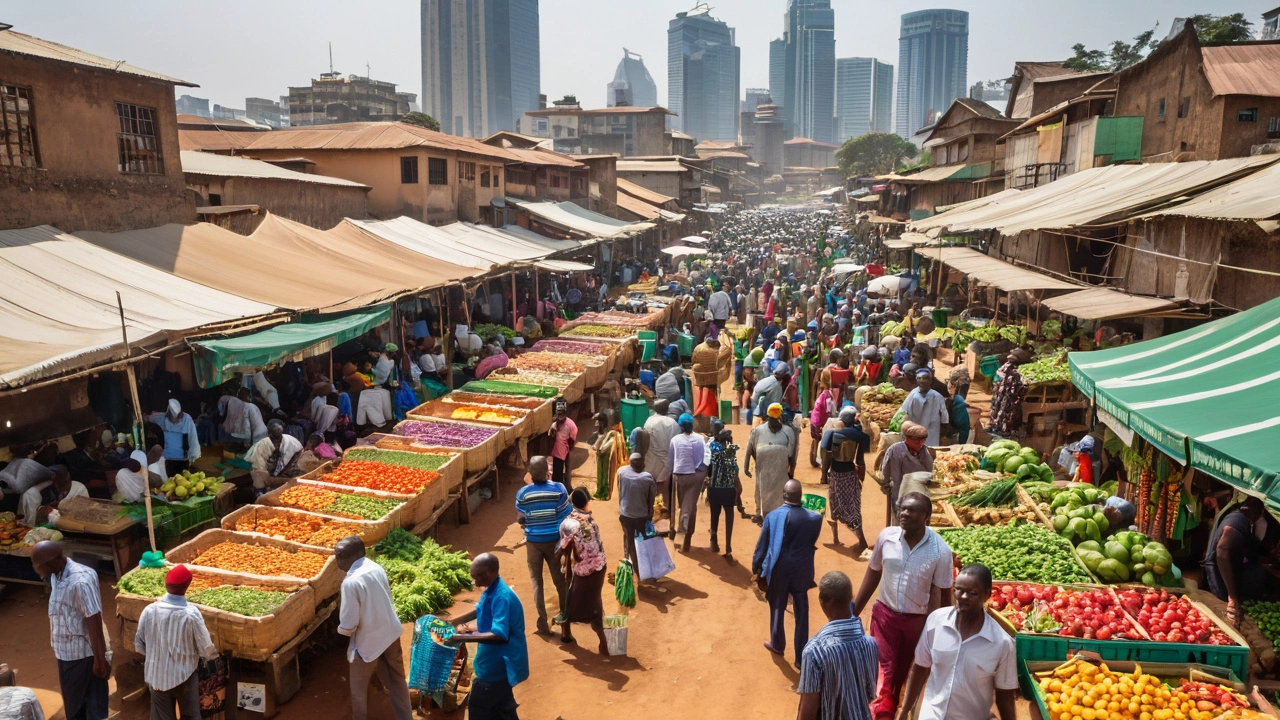
Healthcare Innovations
The healthcare landscape in Africa is undergoing a remarkable transformation. With unprecedented challenges like infectious diseases, maternal health concerns, and limited access to healthcare facilities, there is an increasing need for innovative solutions tailored to these unique problems. Local entrepreneurs and health tech startups are stepping up, creating a wave of healthcare innovations that are changing lives across the continent.
One noteworthy trend is the rise of mobile health solutions. With over 477 million mobile phone users in sub-Saharan Africa alone, mobile technology offers a critical avenue for reaching underserved populations. Startups are using mobile apps to deliver essential healthcare services, from basic health advice and information to remote consultations with doctors. Apps like mPedigree, which fights counterfeit drugs, are life-saving.
Telemedicine is also gaining traction. Distance and lack of infrastructure no longer impede access to specialists, thanks to telemedicine platforms that allow patients in remote areas to consult with doctors in urban centers or even overseas. This leap in healthcare delivery is closing the gap between rural and urban health services, improving diagnosis, and treatment outcomes.
Innovations in diagnostic technology are making early disease detection more accessible and affordable. Devices like the GeneXpert machine, used for detecting tuberculosis and drug-resistant TB, demonstrate the significant impact of advanced diagnostics. By enabling quick and accurate diagnosis, healthcare providers can start treatments sooner, which is critical for diseases like TB and malaria.
“Innovation is crucial to improving healthcare in Africa. New technologies and creative solutions are making it possible to overcome barriers previously deemed insurmountable,” says Dr. Mwele Malecela, Director of the World Health Organization's Regional Office for Africa.
Another area where Africa is making strides is maternal and child health. Innovations like the MamaOpe smart jacket, which helps diagnose pneumonia in children faster than traditional methods, are remarkable. This invention, created by Ugandan engineer Brian Turyabagye, has the potential to save countless children's lives by ensuring timely and accurate treatment.
Moreover, solar-powered healthcare facilities are emerging as a solution to unreliable electricity that hampers medical services. Solar energy systems are being installed in remote clinics and hospitals, ensuring that power disruptions do not affect critical healthcare services. This shift to renewable energy is not only sustainable but also improves the quality of care in these regions.
Additionally, the use of drones for medical supply delivery is revolutionary. Companies like Zipline are using drones to transport blood, vaccines, and essential medicines to hard-to-reach areas. This innovative approach ensures that healthcare supplies reach their destination swiftly, especially during emergencies, and reduces the logistic challenges of transporting medical goods.
Investing in healthcare innovations is essential for bridging the gap in Africa’s healthcare system. Governments, international organizations, and the private sector must continue to support these breakthroughs and scale their implementation. These innovations not only enhance the quality of life but also contribute to the continent's economic growth by creating jobs and fostering an environment of continuous improvement and development.
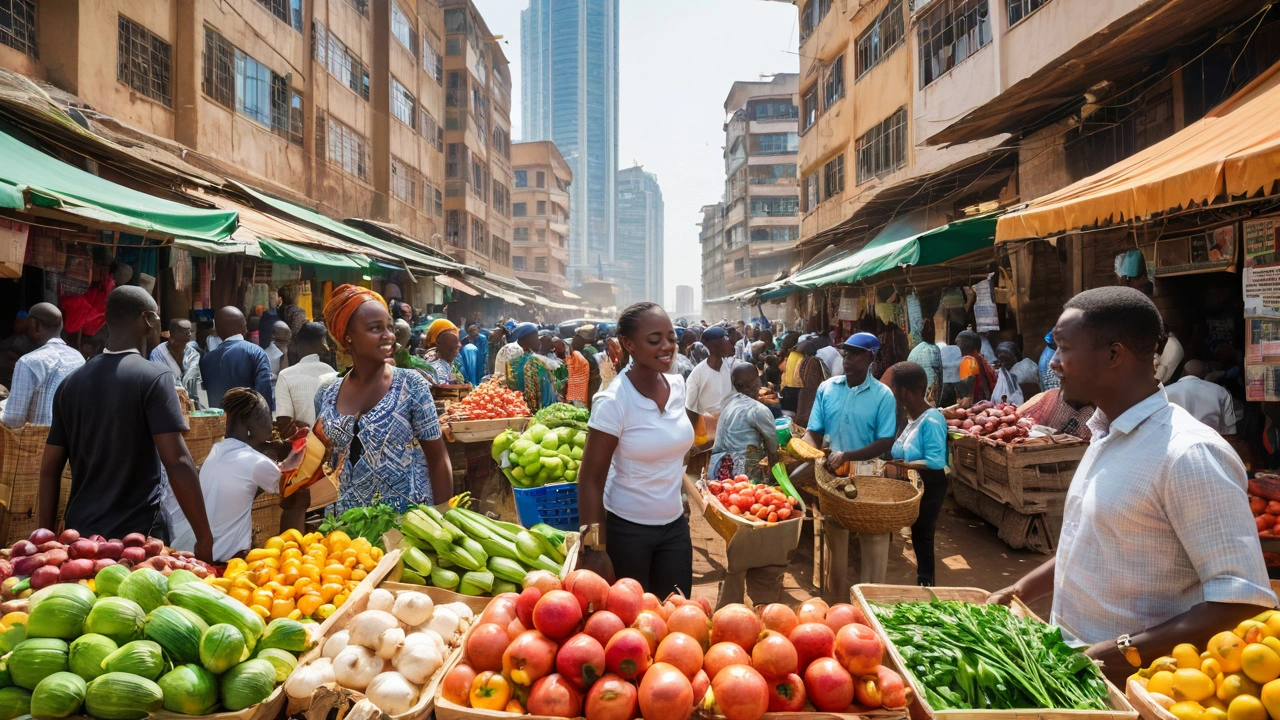
 Exploring the Existence of Ethiopian Billionaires
Exploring the Existence of Ethiopian Billionaires
 Top Countries for Foreign Entrepreneurs to Start a Business
Top Countries for Foreign Entrepreneurs to Start a Business
 English Teacher Salaries in Ethiopia: How Much Can You Earn?
English Teacher Salaries in Ethiopia: How Much Can You Earn?
 Top 3 Religions in Ethiopia: Insights into Faith and Culture
Top 3 Religions in Ethiopia: Insights into Faith and Culture
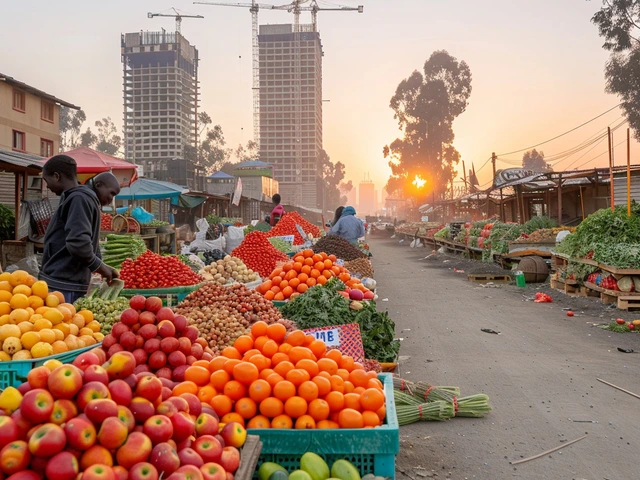 Exploring the Safety of Living in Ethiopia: Insights and Tips
Exploring the Safety of Living in Ethiopia: Insights and Tips
Larry Keaton
August 9, 2024 AT 17:33Yo fam, mobile money is kinda the heartbeat of Kenya rn. If you ain't looking at M-Pesa, you missing the biggest cash flow ever.
Liliana Carranza
August 9, 2024 AT 18:33The surge in tech hubs across Nairobi and Lagos is electrifying! Young innovators are turning every coffee shop into a mini‑lab, and the ripple effects are visible in every corner of the continent. From fintech breakthroughs to edtech marvels, the momentum just won't quit. It's a vivid tapestry of ambition and resourcefulness.
Jeff Byrd
August 9, 2024 AT 19:33Oh great, another buzzword‑filled post about Africa being the next Silicon Valley. Because we all know those startup dreams automatically translate into real jobs overnight, right? Yet the data shows a nuanced picture beyond the hype.
Joel Watson
August 9, 2024 AT 20:33The rapid expansion of technology ecosystems in African metropolises warrants a measured appraisal. While headlines often amplify the narrative of a continent-wide "digital renaissance," the underlying infrastructural constraints persist. Reliable broadband penetration remains uneven, with rural districts still lacking basic connectivity. Moreover, the talent pipeline, though burgeoning, confronts educational disparities that limit depth of expertise. Funding influx, especially from venture capital, has indeed accelerated prototype development, yet the conversion to sustainable revenue streams is inconsistent. Regulatory frameworks across various jurisdictions oscillate between supportive incentives and opaque compliance requirements, creating an environment of uncertainty for long‑term investors. Intellectual property protection, a cornerstone for innovation, is still evolving and can deter foreign partnership opportunities. It is also noteworthy that many successful fintech solutions, such as mobile money platforms, hinge on monopolistic market positions that may stifle competition. Nevertheless, the collaborative spirit manifested in innovation hubs cannot be dismissed; they serve as crucibles for cross‑disciplinary fertilization. The emphasis on localized problem‑solving ensures that technological interventions are culturally resonant. Scaling these models, however, demands robust supply chains and logistics networks that are often nascent. In sum, while optimism is justified, stakeholders must reconcile enthusiasm with pragmatic strategies to cultivate enduring growth.
Chirag P
August 9, 2024 AT 21:33Investing in agritech offers tangible returns while addressing food security. Collaborative models between local farmers and tech providers can accelerate adoption.
RUBEN INGA NUÑEZ
August 9, 2024 AT 22:33The renewable sector's growth curve is undeniable; stakeholders must capitalize now.
Michelle Warren
August 9, 2024 AT 23:33i kinda think all this hype is just marketing fluff.
Christopher Boles
August 10, 2024 AT 00:33Renewable energy projects not only bring power to villages but also create jobs for local people. When communities see lights on, they feel hopeful and motivated to support more initiatives.
Crystal Novotny
August 10, 2024 AT 01:33Energy is the pulse of progress yet we chase shadows and forget the sun is already shining
Reagan Traphagen
August 10, 2024 AT 02:33Don't be fooled by the glossy reports – big corporations are using the renewable narrative to lock us into another dependency loop, while the real power stays in the hands of the elite.
mark sweeney
August 10, 2024 AT 03:33actually the whole green energy push is just a distraction from the real issue of overpopulation and resource scarcity
randy mcgrath
August 10, 2024 AT 04:33Every sector we discuss reflects a deeper question about how societies choose progress over tradition, and that dialogue is essential for sustainable growth.